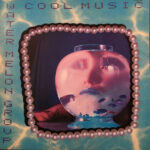“Lovefool” by The Cardigans remains an unforgettable anthem of 90s pop, capturing the bittersweet essence of unrequited love and the desperate plea for affection. Released in 1996, this track quickly climbed the charts, embedding itself in popular culture and continuing to resonate with listeners today. The song’s seemingly upbeat tempo cleverly juxtaposes with its poignant lyrics, painting a vivid picture of vulnerability and longing. Let’s delve into the heart of “Lovefool Song Lyrics” to understand the emotional narrative woven within.
Dear, I fear we’re facing a problem
You love me no longer, I know and
Maybe there is nothing that I can do
To make you do
Mama tells me I shouldn’t bother
That I ought just to stick to another man
A man that surely deserves me
But I think you do
So I cry, and I pray, and I beg
The opening verses immediately set the stage for heartbreak. The speaker is acutely aware of the fading love, acknowledging the likely futility of her efforts to rekindle the flame. Despite advice to move on, her heart remains stubbornly fixated on the object of her affection. This internal conflict—rational advice versus raw emotion—is a central theme. The lines “So I cry, and I pray, and I beg” powerfully convey the depth of her desperation.
Love me, love me
Say that you love me
Fool me, fool me
Go on and fool me
Love me, love me
Pretend that you love me
Leave me, leave me
Just say that you need me
So I cry and I beg for you to
Love me, love me
Say that you love me
Leave me, leave me
Just say that you need me
I can’t care about anything but you
This iconic chorus is the core of “lovefool song lyrics.” The repetition of “Love me, love me” is almost childlike in its simplicity and directness, yet it carries immense emotional weight. The willingness to be fooled, to accept even pretense, highlights the extremity of her longing. The line “I can’t care about anything but you” encapsulates the all-consuming nature of unrequited love, where all other concerns fade into insignificance.
Lately I have desperately pondered
Spent my nights awake and I wonder
What I could have done in another way
To make you stay
Reason will not lead to solution
I will end up lost in confusion
I don’t care if you really care
As long as you don’t go
The second verse reveals the speaker’s obsessive introspection. Nights are spent replaying scenarios, searching for missteps, and desperately seeking a solution to keep her love from leaving. The admission that “Reason will not lead to solution” underscores the irrationality of love and heartbreak. Logic offers no comfort in the face of emotional turmoil. The desire for the loved one to stay, even without genuine affection (“I don’t care if you really care / As long as you don’t go”), further emphasizes the depth of her despair and the willingness to accept any crumbs of connection.
Love me, love me
Say that you love me
Fool me, fool me
Go on and fool me
Love me, love me
Pretend that you love me
Leave me, leave me
Just say that you need me
So I cry and I beg for you to
Love me, love me
Say that you love me
Leave me, leave me
Just say that you need me
I can’t care about anything but you
(Anything but you)
Love me, love me
Say that you love me
Fool me, fool me
Go on and fool me
Love me, love me
I know that you need me
I can’t care about anything but you
The repetition of the chorus reinforces the central plea and the speaker’s unwavering focus. The slight variation in the final chorus (“I know that you need me”) could be interpreted as a flicker of hope, a delusion, or perhaps a desperate attempt to convince herself of a connection that may not exist. Regardless, it underscores the powerful and sometimes self-deceptive nature of love.
In conclusion, “Lovefool song lyrics” masterfully articulate the pain and desperation of unrequited love. The song’s enduring appeal lies in its honest portrayal of vulnerability and the universal experience of longing for someone who may not reciprocate those feelings. The seemingly contradictory upbeat music only serves to highlight the poignant irony of the lyrics, making “Lovefool” a timeless exploration of the complexities of the human heart.

